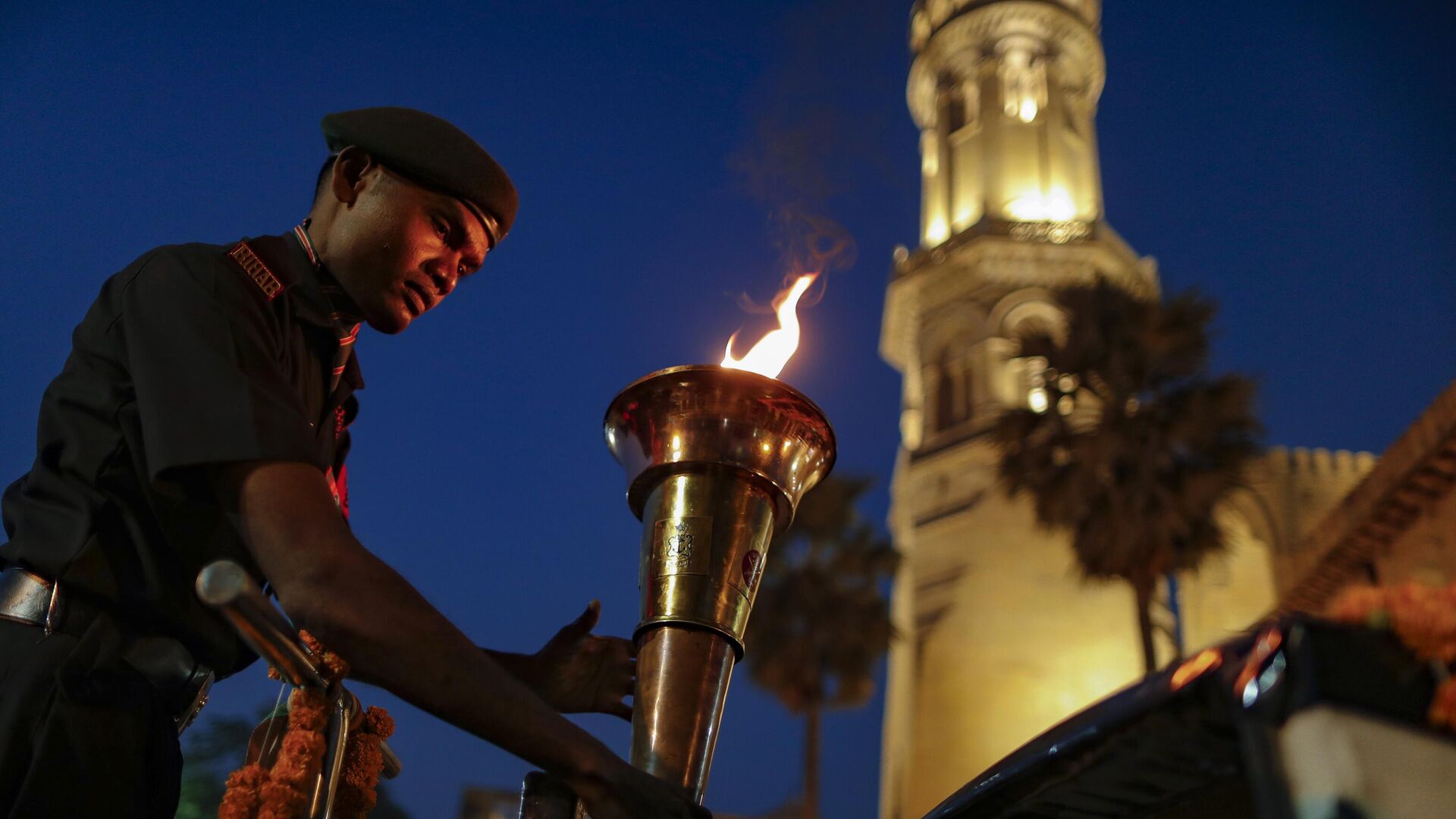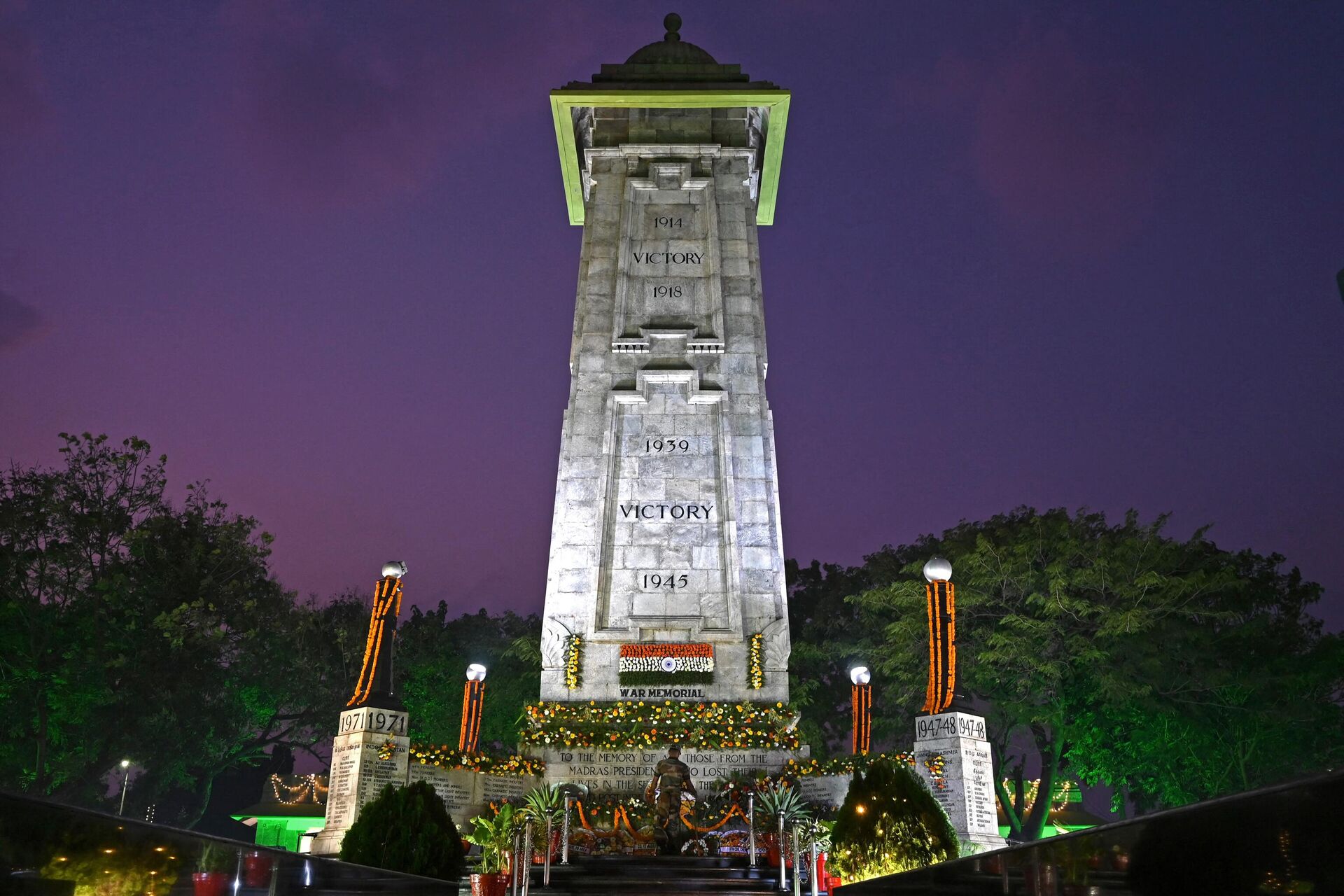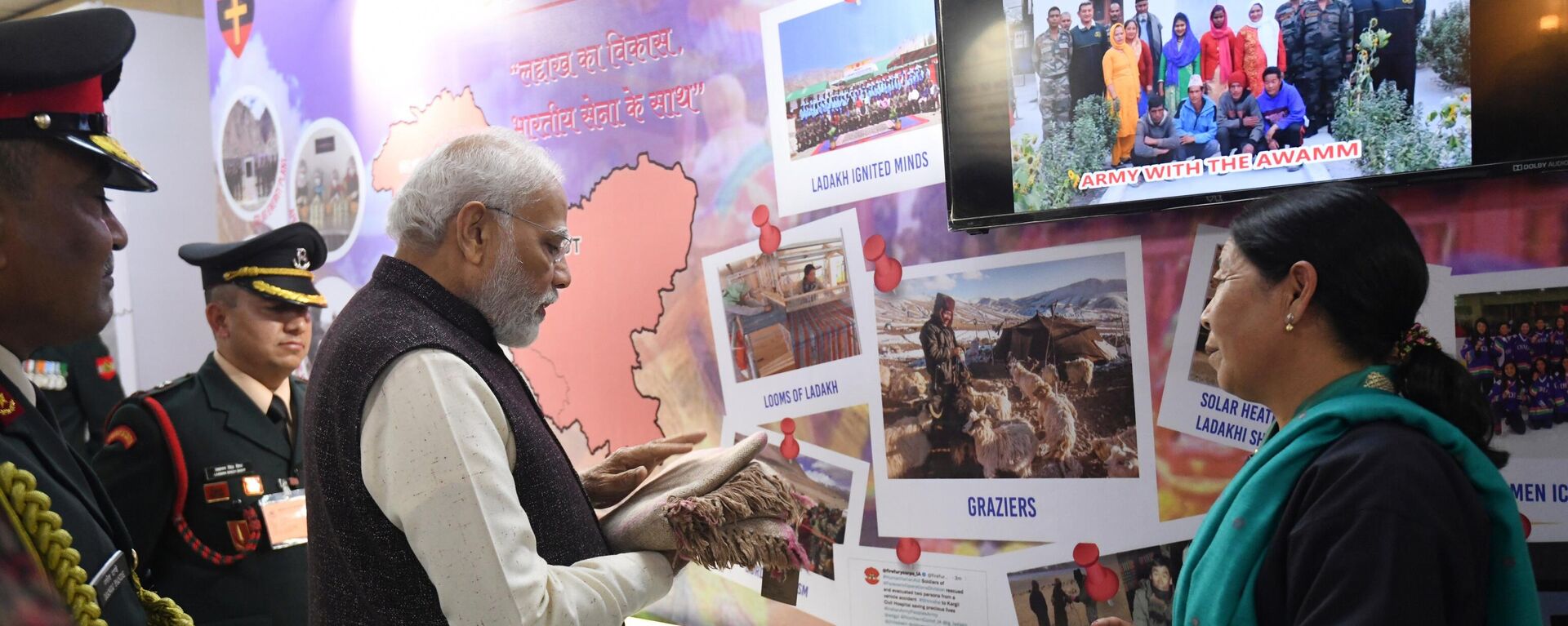https://sputniknews.in/20231216/how-russia-helped-india-win-1971-war-against-pakistan-5857845.html
How Russia Helped India Win 1971 War Against Pakistan
How Russia Helped India Win 1971 War Against Pakistan
Sputnik India
As India marks the 52nd anniversary of its victory over Pakistan in the Bangladesh Liberation War of 1971, Sputnik India looks back at how Russia helped it win the battle against the neighboring nation.
2023-12-16T19:43+0530
2023-12-16T19:43+0530
2023-12-16T19:44+0530
india
indira gandhi
pakistan
us
united kingdom (uk)
india-pakistan war of 1971
moscow
delhi
new delhi
islamabad
https://cdn1.img.sputniknews.in/img/07e7/0c/10/5859670_0:0:3094:1740_1920x0_80_0_0_22c2f2a9b587cbd60905378cbaad4e8a.jpg
India accomplished a dominant triumph over Pakistan in the 1971 War between the two countries, but it wouldn't have been possible without Russian (previously Soviet Union) assistance.However, the Soviet intervention in the military conflict between the two arch-rivals in 1971 was the result of the then-Indian Prime Minister Indira Gandhi's visionary leadership, considering she was the one who signed the 'Peace and Friendship' treaty with Moscow in August of the same year.One of the clauses in the treaty included that if India were to be attacked militarily by any power in the world, it would be considered an attack on the Soviet Union, and Moscow would have to send its forces in such a scenario.The signing of the accord between New Delhi and Moscow came after Pakistan launched Operation Searchlight to quell the Bengali independence movement in East Pakistan (Bangladesh) in March 1971.As the Pakistan Army cracked down on Bengali nationalists in Dhaka and other major cities, including brutally murdering an estimated 300,000 civilians, millions and millions of Bengali refugees moved to India to avoid persecution at the hands of Pakistani troops.With the refugee influx into India continuing to rise, tensions between India and Pakistan escalated, and a military intervention between the two sovereign states looked imminent.Following the Pakistan Air Force's attack, Indian leader Indira Gandhi ordered a full-scale invasion of the neighboring nation on the same day.Though Pakistan drew the first blood through its air raids on Indian airfields, India quickly gained the upper hand in the war, thanks to then-Indian Army Chief Sam Manekshaw's astute strategic planning.Soviet Union Counters American and British Plans Against IndiaAs Pakistan Armed Forces were being battered in battle by the Indian military, the United States (US) and its allies, including the United Kingdom (UK), planned to influence the outcome of the war by siding with Islamabad.The planned US intervention in the India-Pakistan war of 1971 came following India's decision to recognize Bangladesh as an independent country on December 6.Two days later, the administration of US President Richard Nixon directed Task Force 74, part of its Navy's Seventh Fleet to advance towards the Bay of Bengal.On the other hand, Great Britain dispatched HMS Eagle, its powerful aircraft carrier, to the Arabian Sea.The deployment of the US and the UK Carrier Battle Groups was part of the larger US game plan, according to which Washington wanted to encircle (gherao) India on three fronts.Nonetheless, their plans fell apart after India sent a SOS to the Soviet Union.Russia Sends Nuclear-Armed Warships, Submarines in Response to Indian SOSIndia's request received a prompt response from Moscow as the Soviet leadership deployed warships of its nuclear-armed Pacific Fleet in the region.The flotilla of Russian Navy's ships commanded by advanced Admiral Vladimir Kruglyakov moved in India's direction from Vladivostok at breakneck speed.This tactical genius of the Russian commanders forced the fleets of the two Western powers to change their route before reaching India. As they never entered Indian waters, New Delhi's victory became certain in the 1971 war.Only three days after the Russians came to their support, India achieved an overwhelming triumph over Pakistan after 93,000 Pakistani troops surrendered to the Indian Army on 16 December.
https://sputniknews.in/20231216/vijay-diwas-pm-modi-leaders-pay-tribute-to-soldiers-of-1971-india-pakistan-war-5848490.html
india
pakistan
us
united kingdom (uk)
moscow
delhi
new delhi
islamabad
bangladesh
bay of bengal
Sputnik India
feedback.hindi@sputniknews.com
+74956456601
MIA „Rossiya Segodnya“
2023
Pawan Atri
https://cdn1.img.sputniknews.in/img/07e6/0c/13/139630_147:0:831:684_100x100_80_0_0_8fa2b25903e7787fe6a2698552c167df.png
Pawan Atri
https://cdn1.img.sputniknews.in/img/07e6/0c/13/139630_147:0:831:684_100x100_80_0_0_8fa2b25903e7787fe6a2698552c167df.png
News
en_IN
Sputnik India
feedback.hindi@sputniknews.com
+74956456601
MIA „Rossiya Segodnya“
Sputnik India
feedback.hindi@sputniknews.com
+74956456601
MIA „Rossiya Segodnya“
Pawan Atri
https://cdn1.img.sputniknews.in/img/07e6/0c/13/139630_147:0:831:684_100x100_80_0_0_8fa2b25903e7787fe6a2698552c167df.png
1971 war, india russia cooperation 1971 war, how russia helped india win 1971 war, how russia assisted india in 1971 war, russian contribution in 1971 war, 1971 war and russian assistance, 1971 war russia us naval fleet, 1971 war soviet union, 1971 war uss enterprise, india-pakistan war of 1971, vijay diwas, vijay diwas 2023, anniversary of 1971 war, indian army officer who saved sheikh hasina, mujibur rahman, who rescued sheikh hasina from pakistani captivity, mujibur rahman pakistani captivity 1971 war, indian army mujibur rahman rescue operation 1971, sheikh hasina indian army rescue operation 1971, 1971 war sheikh hasina rescue, 1971 war mujibur rahman rescue,
1971 war, india russia cooperation 1971 war, how russia helped india win 1971 war, how russia assisted india in 1971 war, russian contribution in 1971 war, 1971 war and russian assistance, 1971 war russia us naval fleet, 1971 war soviet union, 1971 war uss enterprise, india-pakistan war of 1971, vijay diwas, vijay diwas 2023, anniversary of 1971 war, indian army officer who saved sheikh hasina, mujibur rahman, who rescued sheikh hasina from pakistani captivity, mujibur rahman pakistani captivity 1971 war, indian army mujibur rahman rescue operation 1971, sheikh hasina indian army rescue operation 1971, 1971 war sheikh hasina rescue, 1971 war mujibur rahman rescue,
How Russia Helped India Win 1971 War Against Pakistan
19:43 16.12.2023 (Updated: 19:44 16.12.2023) As India marks the 52nd anniversary of its victory over Pakistan in the Bangladesh Liberation War of 1971, Sputnik India looks back at how Russia helped it win the battle against the neighboring nation.
India accomplished a dominant triumph over Pakistan in the 1971 War between the two countries, but it wouldn't have been possible without Russian (previously Soviet Union) assistance.
However, the Soviet intervention in the military conflict between the two arch-rivals in 1971 was the result of the then-Indian Prime Minister Indira Gandhi's visionary leadership, considering she was the one who signed the 'Peace and Friendship' treaty with Moscow in August of the same year.
One of the clauses in the treaty included that if India were to be attacked militarily by any power in the world, it would be considered an attack on the Soviet Union, and Moscow would have to send its forces in
such a scenario.
The signing of the accord between New Delhi and Moscow came after Pakistan launched Operation Searchlight to quell the Bengali independence movement in East Pakistan (Bangladesh) in March 1971.
As the Pakistan Army cracked down on Bengali nationalists in
Dhaka and other major cities, including brutally murdering an estimated 300,000 civilians, millions and millions of Bengali refugees moved to India to avoid
persecution at the hands of Pakistani troops.
With the refugee influx into India continuing to rise, tensions between India and Pakistan escalated, and a military intervention between the two sovereign states looked imminent.
While India held back and did not officially send troops to East Pakistan for many months, the war eventually began on 3 December 1971 after the Pakistan Air Force (PAF) conducted pre-dawn airstrikes on 11 Indian airbases under its operation codenamed Chengiz Khan.
Following the Pakistan Air Force's attack, Indian leader Indira Gandhi ordered a full-scale invasion of the neighboring nation on the same day.
Though Pakistan drew the first blood through its air raids on Indian airfields, India quickly gained the upper hand in the war, thanks to then-Indian Army Chief
Sam Manekshaw's
astute strategic planning.
Soviet Union Counters American and British Plans Against India
As Pakistan Armed Forces were being battered in battle by the Indian military, the United States (US) and its allies, including the United Kingdom (UK), planned to influence the outcome of the war by siding with Islamabad.
The planned US intervention in the India-Pakistan war of 1971 came following India's decision to recognize Bangladesh as an independent country on December 6.
Two days later, the administration of US President
Richard Nixon directed Task Force 74, part of its Navy's Seventh Fleet to advance towards the
Bay of Bengal.
On the other hand, Great Britain dispatched HMS Eagle, its powerful aircraft carrier, to the Arabian Sea.
The deployment of the US and the UK Carrier Battle Groups was part of the larger US game plan, according to which Washington wanted to encircle (gherao) India on three fronts.
The US naval fleet would have targeted Indian forces in the Bay of Bengal, the UK would have attacked them in the Arabian Sea, and Pakistan was already battling their military on land.
Nonetheless, their plans fell apart after India sent a SOS to the Soviet Union.
Russia Sends Nuclear-Armed Warships, Submarines in Response to Indian SOS
India's request received a prompt response from Moscow as the Soviet leadership deployed warships of its nuclear-armed Pacific Fleet in the region.
The flotilla of Russian Navy's ships commanded by advanced Admiral
Vladimir Kruglyakov moved in India's direction from Vladivostok
at breakneck speed.
Part of the Russian fleet were nuclear-armed destroyers and submarines that were armed to the teeth with missiles that could have proved lethal for both British and American naval vessels.
If this wasn't enough, the officers of the Soviet Navy successfully encircled the US and the UK warships, thus stopping them on their way to India.
This tactical genius of the Russian commanders forced the fleets of the two Western powers to change their route before reaching India. As they never entered Indian waters, New Delhi's victory became certain in the 1971 war.
Only three days after the Russians came to their support, India achieved an overwhelming triumph over Pakistan after 93,000 Pakistani troops
surrendered to the Indian Army on 16 December.




